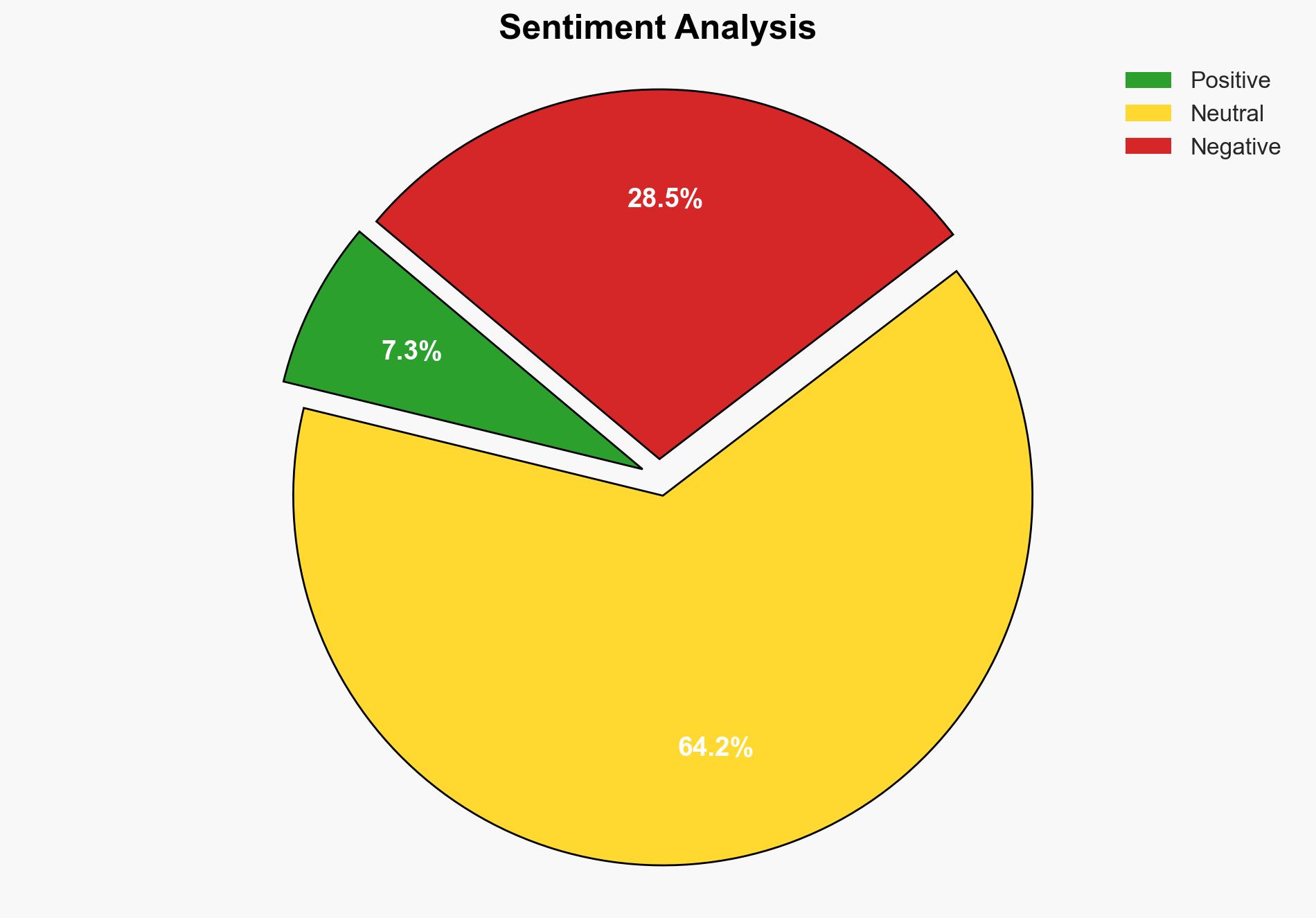Prominent religious leader among 4 killed in northwest Pakistan bombing – Globalsecurity.org
Published on: 2025-03-01
Intelligence Report: Prominent religious leader among 4 killed in northwest Pakistan bombing – Globalsecurity.org
1. BLUF (Bottom Line Up Front)
A bombing at a religious seminary in northwest Pakistan resulted in the deaths of four individuals, including a prominent religious leader, Hamid ul Haq. The attack occurred during Friday prayers in the Akora Khattak area, Nowshera district. The bombing is believed to be carried out by Daesh, targeting innocent worshippers. This incident highlights ongoing security challenges in the region, with implications for both local and international stakeholders.
2. Detailed Analysis
The following structured analytic techniques have been applied for this analysis:
SWOT Analysis
Strengths: Strong community ties and religious influence in the region.
Weaknesses: Vulnerability to extremist attacks and insufficient security measures.
Opportunities: Potential for increased international cooperation to combat terrorism.
Threats: Rising militancy and cross-border terrorism impacting regional stability.
Cross-Impact Matrix
The bombing in Pakistan may exacerbate tensions with neighboring Afghanistan, potentially influencing regional security dynamics. Increased militancy could lead to further destabilization, affecting both countries’ internal security and international relations.
Scenario Generation
Best-case scenario: Enhanced security measures and international cooperation lead to a reduction in terrorist activities.
Worst-case scenario: Escalation of violence and cross-border terrorism destabilizes the region further.
Most likely scenario: Continued sporadic attacks with fluctuating intensity, requiring ongoing vigilance and strategic responses.
3. Implications and Strategic Risks
The attack underscores significant risks to national security and regional stability. The resurgence of militancy in northwest Pakistan poses threats to economic interests and international relations. The potential for further attacks could impact foreign investment and humanitarian efforts in the region.
4. Recommendations and Outlook
Recommendations:
- Enhance intelligence-sharing and coordination with international partners to combat terrorism.
- Implement advanced security technologies and increase funding for counter-terrorism operations.
- Strengthen community engagement and counter-radicalization programs to prevent extremist recruitment.
Outlook:
Best-case: Strengthened security measures lead to a decline in terrorist activities.
Worst-case: Increased attacks destabilize the region, prompting international intervention.
Most likely: Continued threat of sporadic attacks necessitates ongoing vigilance and adaptive strategies.
5. Key Individuals and Entities
The report mentions significant individuals such as Hamid ul Haq, Maulana Sami ul Haq, Mullah Omar, Jalaluddin Haqqani, and Sirajuddin Haqqani. Key entities include the religious seminary in Akora Khattak and the Daesh terrorist group.




